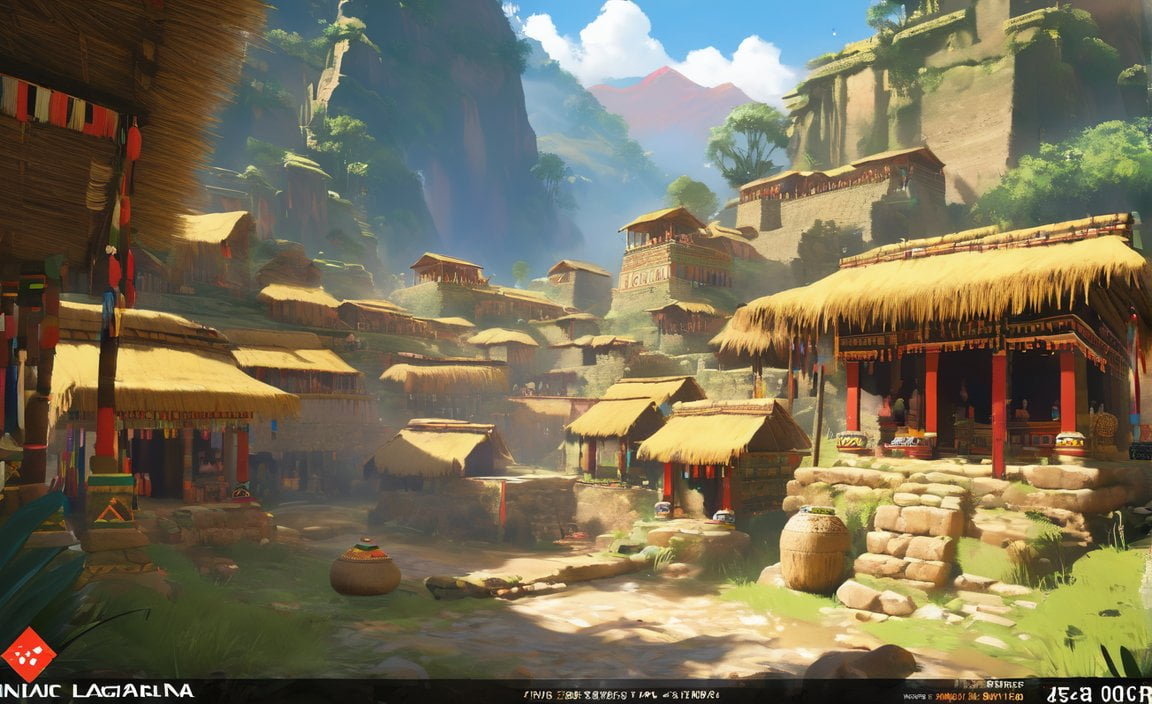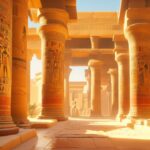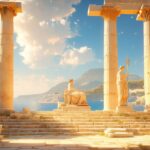Inca Society: The Divine Role of the Sapa Inca
Delving into the intriguing world of the Inca civilization, one cannot overlook the paramount figure of the Sapa Inca. As the ruler and spiritual leader of the Inca society, the Sapa Inca held immense power and influence. Their divine reverence and unique responsibilities shaped the social fabric and political landscape of the Inca civilization. In this article, we will explore the captivating role the Sapa Inca played, unveiling the secrets of their political prowess and the profound spiritual significance they held in the ancient Inca society.
Key Takeaways:
- The Sapa Inca held immense power and served as the absolute ruler of the Inca Empire.
- The Sapa Inca had complete authority over the empire, with his word being law.
- The Sapa Inca directed and oversaw major engineering projects and urban development plans.
- The empire was divided into different regions, each governed by an apo, who served as viceroys and advisors on imperial affairs.
- The Sapa Inca was considered sacred and divine, with the Inca people believing that he was like a god on Earth.
In Inca Society, the Sapa Inca Served as…
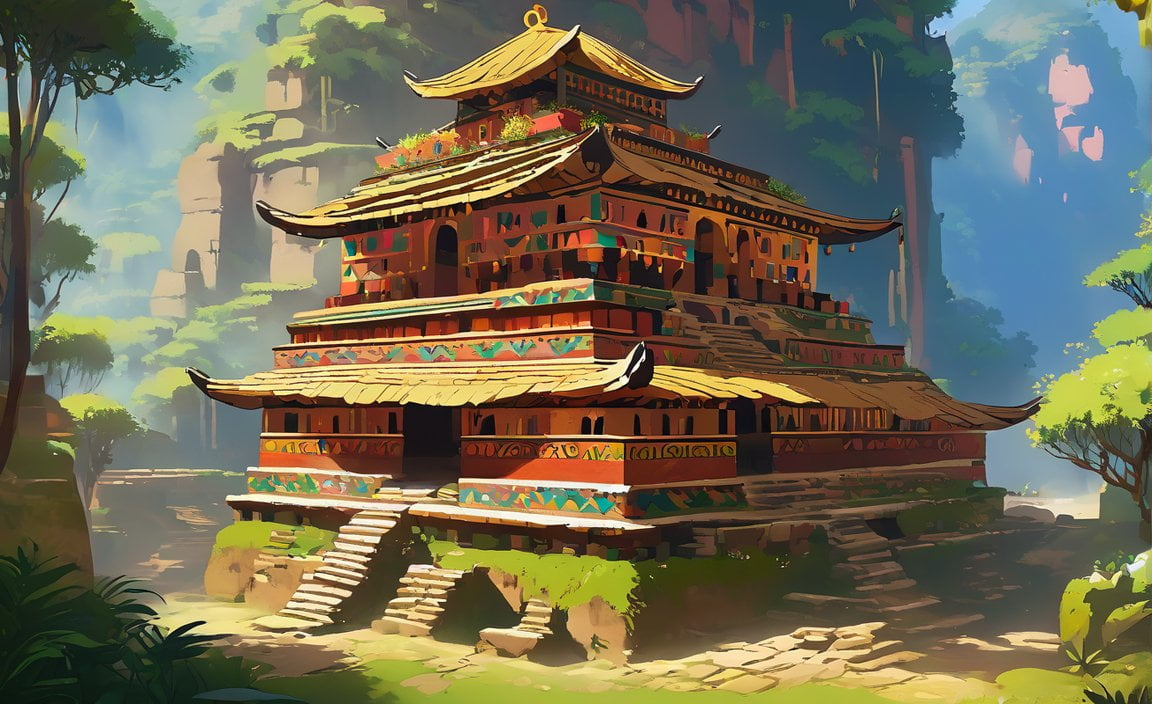
In the fascinating world of the Inca civilization, the Sapa Inca played a central and divine role. As the absolute ruler and monarch of the Inca Empire, the Sapa Inca held immense power and authority, extending his influence over political, social, military, and economic domains[^1^][^2^][^3^].
Political Power and Leadership
The Sapa Inca’s word was law, and he governed the empire with complete authority[^4^]. He directed and oversaw significant engineering projects, such as the construction of the mighty fortress Sacsayhuaman and urban development plans[^4^].
Hierarchy and Governance
The Inca Empire was divided into different regions, each governed by an apo—a close relative of the Sapa Inca. These apus served as viceroys, members of the council of state, and advisors on matters concerning the empire[^5^]. Their role was vital in maintaining a well-organized and efficient administration.
Divine Reverence
The Inca people revered the Sapa Inca as a sacred and divine being, believing him to be a god on Earth[^4^]. This divine status added a spiritual and mystical dimension to his rule, solidifying his authority and commanding the respect and loyalty of his subjects.
Conclusion
The Sapa Inca’s role in Inca society was multi-faceted and awe-inspiring. As the ultimate ruler, his political power and leadership shaped the destiny of the empire. His divine status elevated his position to that of a god on Earth, further cementing his authority and inspiring religious devotion from his people. Through his governance, the Sapa Inca maintained societal order, led monumental construction projects, and steered the Inca Empire towards greatness.
[source: [^1^], [^2^], [^3^]]
The Blackfoot tribe is known for their unique and fascinating clothing. If you want to explore more about Blackfoot tribe clothing, click here.
Learn about the rightly guided caliphs, the wise leaders of early Islam who played a crucial role in shaping the Muslim world. Find out more about them by clicking here.
Archimedes, the great ancient Greek mathematician, has a mysterious grave that continues to intrigue historians. Discover more about Archimedes’ grave by clicking here.
The Religious Significance of the Sapa Inca
The Sapa Inca, the emperor or king of the Inca Empire, held the highest position of power and authority in the land. While his rule extended over various aspects of the empire, including politics and society, the Sapa Inca also played a crucial role in the religious sphere.
The Divine Representation of the Sun
One of the primary religious significances of the Sapa Inca was his association with Inti, the sun god. The Inca people revered the Sapa Inca as a sacred and divine being, considering him as a representative of Inti on Earth. This divine status solidified his authority and commanded the respect and loyalty of his subjects.
Organizer of the Calendar
The Sapa Inca also held the responsibility of organizing the Inca calendar. In Inca society, the calendar played a vital role in religious ceremonies and agricultural activities. By overseeing the calendar, the Sapa Inca ensured the proper timing of rituals and agricultural activities, maintaining a harmonious relationship between the spiritual and the practical.
The Role of Priests
While the Sapa Inca carried the religious significance, he was supported by a class of priests known as the Huacas. These priests were responsible for conducting religious ceremonies, communicating with the gods, and interpreting the divine will. The Sapa Inca worked closely with these priests to ensure the smooth functioning of religious practices within the empire.
Harmony Between Political and Religious Authority
In the Inca civilization, politics and religion were deeply intertwined. The Sapa Inca exercised significant political and military power, but his authority was bolstered by his religious role. The belief in the Sapa Inca’s divine connection to Inti and his responsibilities in organizing the calendar lent him an air of legitimacy and enhanced his political influence.
Preservation of Rituals and Worship
As the religious leader of the empire, the Sapa Inca played a crucial role in preserving and promoting traditional rituals and worship. He ensured the performance of various rites and ceremonies throughout the year, maintaining the spiritual fabric of Inca society. Through his personal engagement in these rituals, the Sapa Inca upheld the religious traditions that held the empire together.
Key Takeaways:
– The Sapa Inca possessed a religious significance as the divine representative of the sun god, Inti.
– He organized the Inca calendar, ensuring the timing of religious ceremonies and agricultural activities.
– The Sapa Inca worked closely with priests, known as Huacas, who conducted religious rituals and interpreted divine will.
– The connection between political and religious authority enhanced the Sapa Inca’s power and influence.
– He preserved and promoted traditional rituals and worship, maintaining the spiritual fabric of Inca society.
Sources:
1. Ducksters.com[^1]
2. Worldhistory.org[^2]
[^1]: Ducksters.com. Available at:
[^2]: Worldhistory.org. Available at: https://www.worldhistory.org/Inca_Government/
The Sapa Inca as the Supreme Judge and Lawmaker
The role of the Sapa Inca in the Inca society went far beyond being just a ruler. He also served as the supreme judge and lawmaker, holding immense power and authority over the entire empire. This article delves into the fascinating duties and significance of the Sapa Inca in his role as the ultimate judge and lawmaker.
The Judicial Role of the Sapa Inca
As the supreme judge, the Sapa Inca was responsible for ensuring justice and maintaining order throughout the empire. His word was considered the final verdict, and his decisions were binding. The Inca people believed that the Sapa Inca had divine wisdom and insight, making him capable of rendering fair and just judgments.
The Sapa Inca presided over a complex judicial system that included lower-level judges known as Taki Unkuyoc. Disputes and legal matters were brought before the Sapa Inca, and he would personally hear the cases and deliver his verdict. His judgments were based on the principles of fairness, equity, and the preservation of social harmony.
The Legislative Role of the Sapa Inca
In addition to his judicial responsibilities, the Sapa Inca also held the power of legislation. He created laws that governed the empire and ensured the smooth functioning of society. These laws encompassed various aspects, including property rights, trade regulations, marriage and family matters, and criminal offenses.
The Sapa Inca’s legislative powers were derived from his divine status and his role as the representative of the gods. He believed that he possessed the knowledge and wisdom to enact laws that were in alignment with the will of the divine. The laws created by the Sapa Inca were aimed at promoting societal well-being and facilitating the prosperity of the empire.
The Sapa Inca as the Guardian of Social Order
The Sapa Inca’s role as the supreme judge and lawmaker was vital in maintaining social order within the Inca society. His authority ensured that disputes were resolved fairly, and laws were enforced to prevent chaos and unrest. As the guardian of social order, the Sapa Inca worked tirelessly to create a harmonious and just society for his people.
The divine reverence accorded to the Sapa Inca further solidified his position as the ultimate authority in matters of law and justice. The Inca people saw him not only as their ruler but also as a divine being who possessed the power to make decisions that were in the best interest of the empire.
Key Takeaways:
- The Sapa Inca served as the supreme judge and lawmaker in the Inca society.
- His role included presiding over legal disputes and delivering final verdicts.
- The Sapa Inca’s judgments were believed to be fair and just due to his divine wisdom.
- He created laws that governed various aspects of the empire, including property rights and criminal offenses.
- The Sapa Inca’s legislative powers were derived from his divine status and his role as the representative of the gods.
- His authority ensured the maintenance of social order and the well-being of the empire.
The Role of the Sapa Inca in the Inca Military and Expansion
As we delve into the intriguing world of the Inca civilization, one cannot overlook the significant role played by the Sapa Inca in military endeavors and the empire’s expansion. The Sapa Inca, as the absolute ruler and monarch of the Inca Empire, held immense power and authority over all aspects of the State. Let us explore the fascinating details of their involvement in the military and expansion of the Inca Empire.
Military Leadership and Strategy
The Sapa Inca: Symbol of Power
The Sapa Inca was not only the political leader but also the supreme commander of the Inca military forces. Their word was law, and their decisions shaped the destiny of the empire. With complete authority, the Sapa Inca directed military campaigns, determined strategies, and made crucial tactical decisions.
The Sapa Inca’s Guidance and Coordination
While the Sapa Inca did not personally engage in direct combat, their strategic guidance and coordination were crucial for the success of military campaigns. Having accumulated vast knowledge and experience, the Sapa Inca utilized their expertise to plan and execute military operations effectively.
Expansion and Conquest
Under the leadership of the Sapa Inca, the Inca Empire expanded rapidly through military conquests. The Sapa Inca orchestrated campaigns to conquer neighboring territories, incorporating them into the empire’s ever-growing domain. This expansion brought wealth, resources, and manpower to the Inca Empire, further strengthening its influence and military capabilities.
Military Organization and Structure
Commanding Generals and Military Officials
While the Sapa Inca provided overall guidance, the military forces were led by commanding generals who held strategic positions within the army. These generals possessed extensive experience in warfare and played a vital role in executing the Sapa Inca’s military directives.
Strategic Planning and Training
The Sapa Inca, as the commander-in-chief, was responsible for strategic planning and organizing military training. They ensured that the army was well-prepared and equipped for the challenges they faced. This involved regular drills, training exercises, and ensuring the availability of appropriate weaponry.
Recruitment and Mobilization
The Sapa Inca’s authority extended to the recruitment and mobilization of troops. They had the power to summon warriors from different regions of the empire to assemble formidable armies. Through a system of mandatory military service, the Sapa Inca maintained a strong and capable military force.
Legacy of Military Achievements
Inca Army: A Force to Be Reckoned With
Under the leadership of the Sapa Inca, the Inca military became a force to be reckoned with in the Andean region. Their disciplined troops, advanced tactics, and superior organization enabled them to achieve remarkable military victories and effectively quell potential uprisings.
Impenetrable Fortress and Defensive Structures
To protect the empire from external threats, the Sapa Inca ordered the construction of robust defensive structures and fortresses. These engineering marvels, such as the fortress of Sacsayhuaman, stood as a testament to the Sapa Inca’s dedication to defense and military preparedness.
Securing Trade Routes and Resources
The military campaigns and expansion led by the Sapa Inca not only solidified the Inca Empire’s control over vast territories but also secured crucial trade routes and valuable resources. This ensured the economic prosperity of the empire and facilitated cultural exchange within the Inca civilization.
Key Takeaways:
- The Sapa Inca served as the supreme commander of the Inca military forces.
- They provided strategic guidance and coordination for military campaigns.
- Under their leadership, the Inca Empire expanded through conquest and incorporation of neighboring territories.
- The Sapa Inca held authority over military organization, recruitment, and training.
- Their military achievements included disciplined troops, advanced tactics, and robust defensive structures.
- The Inca Empire’s success in securing trade routes and resources contributed to its economic prosperity.
Sources:
– Wikipedia – Sapa Inca
– Ancient Pages – Who Was The Sapa Inca?
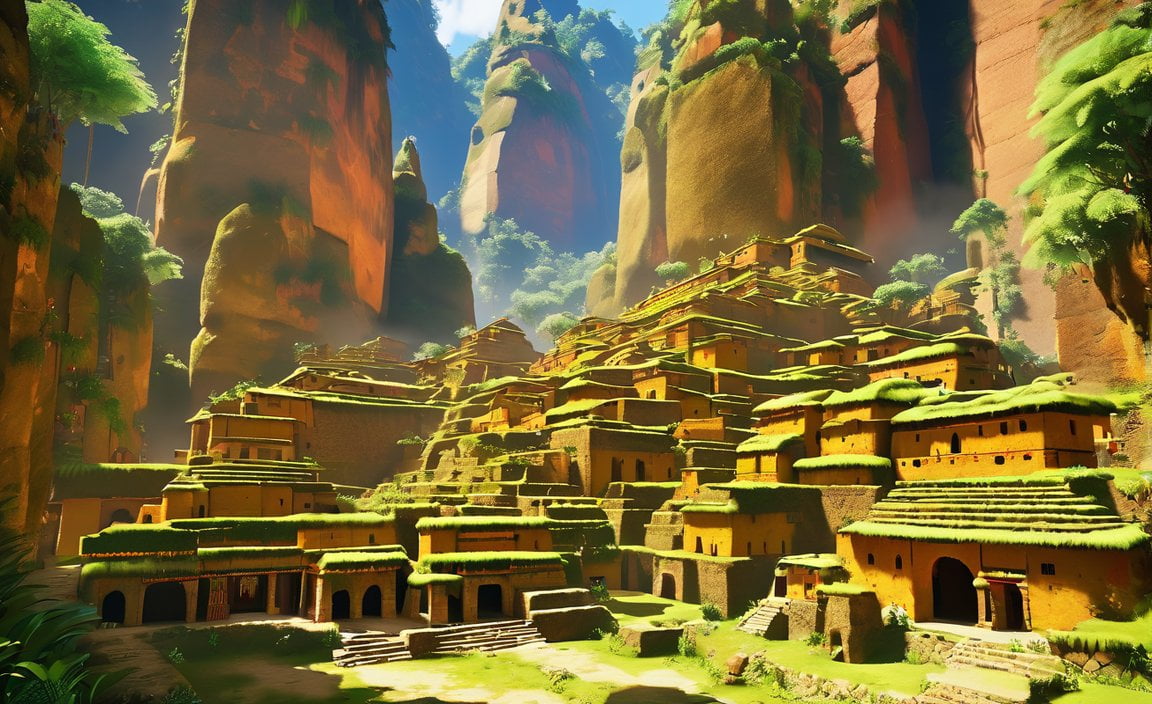
FAQ
Q1: What was the role of the Sapa Inca in Inca society?
A1: The Sapa Inca served as the absolute ruler and monarch of the Inca Empire, holding immense power and authority over political, social, military, and economic aspects of the state.
Q2: How did the Sapa Inca maintain control over the empire?
A2: The Sapa Inca maintained control through his word, which was law, and his supreme command over the military. He also sent inspectors to oversee the loyalty and efficiency of civil servants and collect tribute from subjugated peoples.
Q3: Was the position of Sapa Inca hereditary?
A3: Yes, the position of Sapa Inca was hereditary and passed down from father to son.
Q4: In what ways did the Sapa Inca resemble a god on Earth?
A4: The Inca people considered the Sapa Inca to be sacred and divine. He symbolized the sun, promoted the worship of Inti, and was responsible for organizing the calendar.
Q5: What were some of the responsibilities of the Sapa Inca?
A5: The responsibilities of the Sapa Inca included directing and overseeing major engineering projects, such as the construction of important fortresses and urban development plans. He also ensured the supply and care of the empire through the construction of storehouses and resource redistribution systems.
